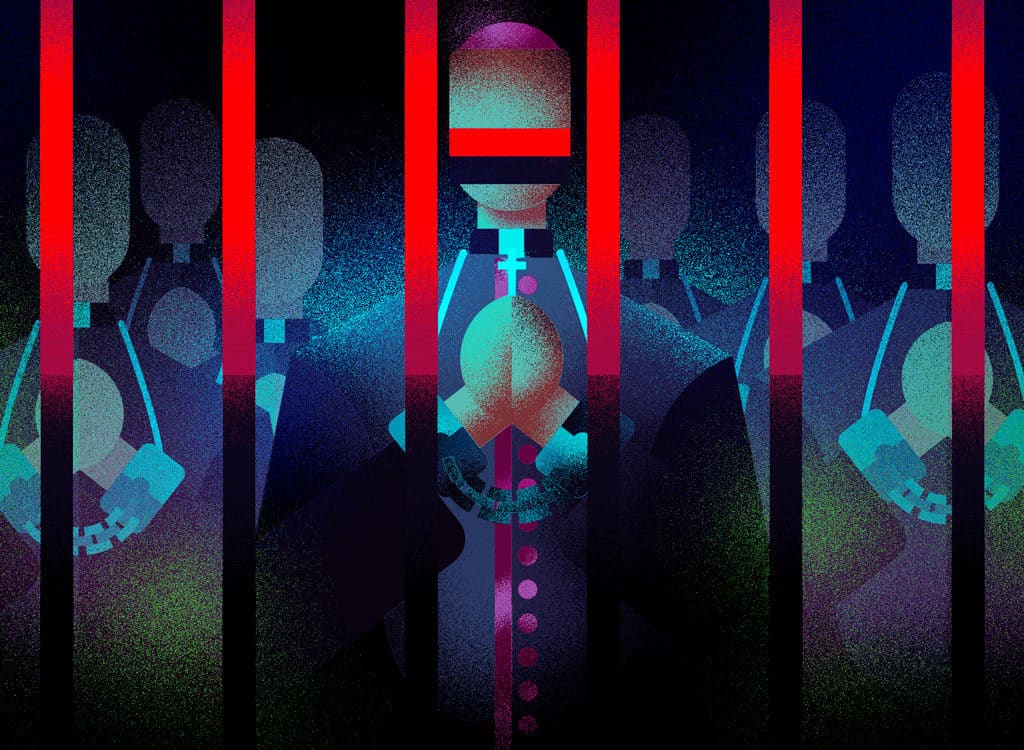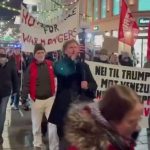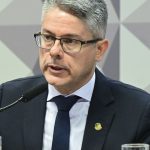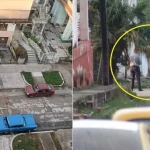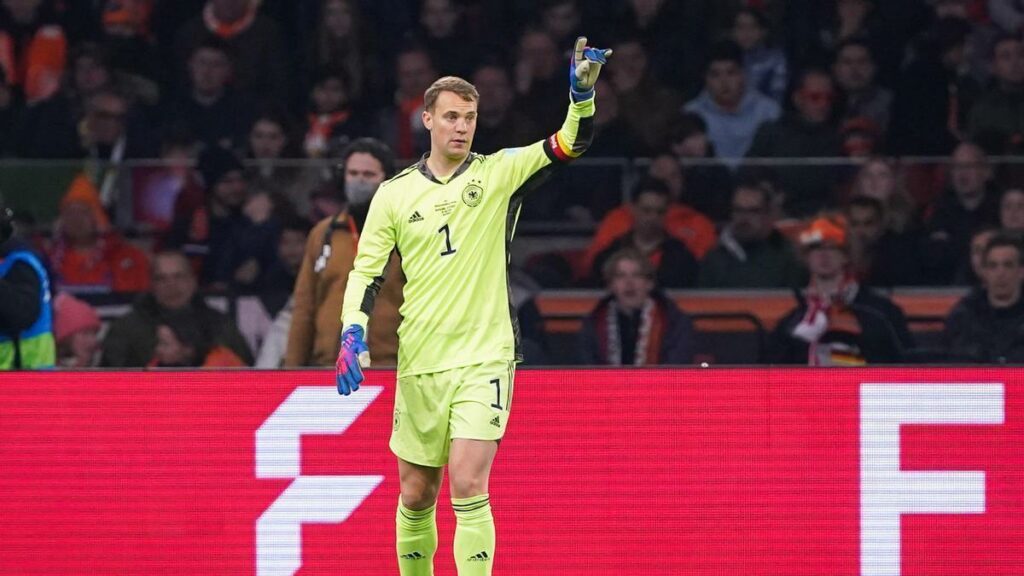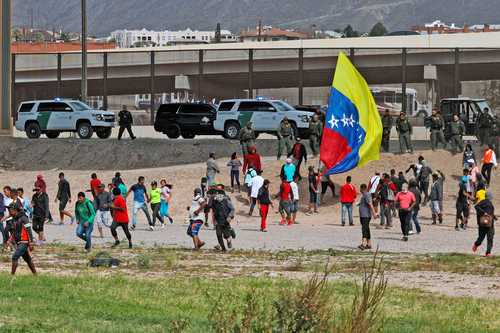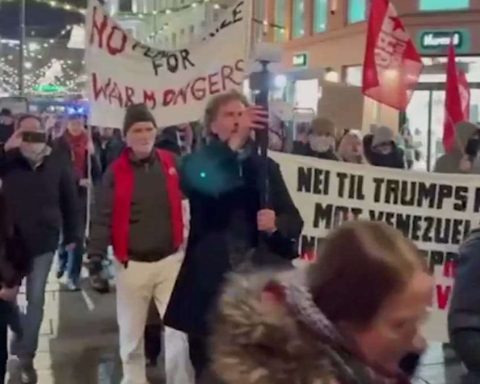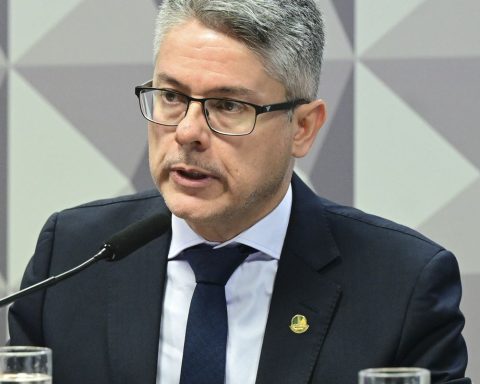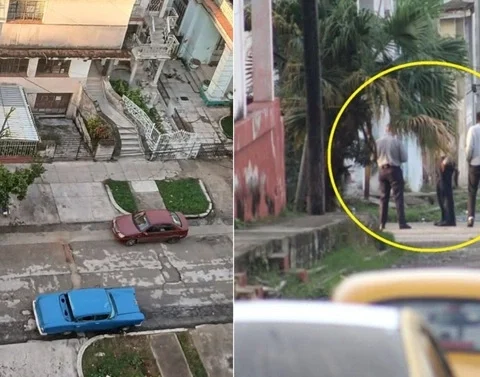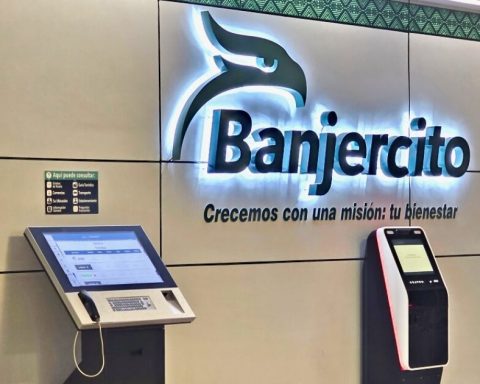The priest “Carlos” located himself in a safer area inside the parish house, anticipating that the police contingent that guarded his parish day and night would raid it at any moment. It was August when he began a new chapter of Ortega’s repression against the Catholic Church, but this time, more violent than in previous years, arresting priests, threatening them, desecrating temples and generating a wave of religious exiles.
The priest’s caution had a recent precedent. On August 1, a police contingent violently entered to the Jesus of Divine Mercy parish, in Sébaco, and kept the priest Uriel Vallejos surrounded for three days. Father “Carlos” knew that he remained in custody and the attack could be repeated, this time, against him.
A parishioner told him that the Police had sent him a message: “Tell your priest that if he doesn’t shut up, we’re going to move him,” the officer threatened the woman, when she rebuked him for the siege against a house, while a group of Catholics prayed the Rosary. “It was the first threat I received in the month of August, already like that, in a direct way,” says Father “Carlos”, who has lived through the persecution of the regime since 2018 in two different parishes.
The escalation of attacks against priests has caused several to flee the country, including Father Vallejos and Priest Erick Díaz, both from the Diocese of Matagalpa, threatened with imprisonment.
61% of the population disagrees with the religious forcibly leaving Nicaragua due to government intimidation, according to the most recent survey by the Costa Rican firm CID Gallup, carried out between September 26 and October 10, through of telephone calls to 1,200 people over 16 years of age. Only 18% of those surveyed responded that they “somewhat or strongly agree” with the exile of the religious.
Forms of persecution against priests
Father “Carlos” agreed – under anonymity – to share the strategies that Ortega used to intimidate him.
The priest has been registered since 2018, when he did not remain silent in the face of human rights violations, including the 355 deaths recorded by the Inter-American Commission on Human Rights (IACHR), in the context of repression and official massacre against the Civic Rebellion of that year.
“They called me a vandal, a coup plotter,” he says. He received anonymous messages attempting on his life: “We are going to shoot you”, “Your head is going to roll”. In recent months the threats reappeared: “We are going to kill you,” they told him. Or they threatened him with jail: “You’re going to go to El Chipote.”
“They – the government party – infiltrate people who are Sandinistas and we have them in the churches,” warns the priest. Since 2018, the Ortega fanatics recorded their homilies and took a list of the priests who, according to them, had gotten into politics. “I denounced the wrong thing, nothing more and that is not getting into politics,” the priest clarifies.
In his homilies he denounced the injustices committed by the Government in Nicaragua and questioned the abuse of power and the fanaticism of his followers. He was one of the prophetic voices of the Catholic Church in a country co-opted by a de facto police state imposed since 2018 by Ortega and Murillo.
“The Church is the first to raise its voice against a situation that is not correct,” he maintains. “We are priests who defend the great postulates that God gave us: love, justice, mercy, charity, not taking advantage of the poor,” she explains.
The father distinguishes the ways in which the ruling Sandinista Front harassed him, along with his parishioners:
1- Photograph the parishioners in the processions, since before they were banned in some parts of the country. The officers stood in front and photographed everyone, frightening the parishioners.
2- Increased police presence around the church, with a couple of policemen who remained at each end of the parish, intimidating parishioners who “passed in fear” to enter the temple.
3- Photograph Catholics leaving mass, which also increased that “people were afraid to go to mass,” he details.
4- Siege houses of parish groups, with a persecution that increased in August. The Police did not limit themselves to besieging the Church and its surroundings, but stationed themselves outside the houses where the members of the ecclesial communities gathered to pray, and also took pictures of them or exhorted them not to continue congregating.
From June to date, Ortega has maintained a crusade against the Catholic Church, which has included the kidnapping of priests, including the bishop of the Diocese of Matagalpa and apostolic administrator of the Diocese of Estelí, Rolando Álvarez, who remained together with other religious in the Episcopal Curia of Matagalpa, besieged by a police contingent for 15 days, and transferred home to jail on August 19.
Rejection of the closure of radio stations
Previously, the Nicaraguan Institute of Telecommunications and Post Office (Telcor), closed a dozen Catholic radio stations attached to the Diocese led by Álvarez. The prelate questioned the decision arguing that they had the documents in order.
“If the director of Telcor, Nahima Diaz Flores, wants to receive me, I will take with the receipt and signature of that same day from Telcor, all the documents that I presented to them. If they are right, I myself will say to the people that they are correct, that they close our radios, but if they are not right, that they have the courage and courage to say that they were wrong or that they want to close our media on purpose. ”, said the prelate, with an annoyed tone, in the pulpit of the San Pedro de Matagalpa Cathedral.
63% of the population is “not at all or slightly in agreement” with the arbitrary closure of stations with merely Catholic content, which is also condemned as another attack on freedom of expression, according to the results of the aforementioned CID Gallup survey.
To the illegal arrest of the bishop and several of his priests and collaborators was added the forced exile of several priests.
The security situation of father “Carlos” also worsened. They stepped up surveillance and riot police stationed themselves in front of and behind the parsonage, and on one occasion, a riot police officer and another police officer followed him while he was on his way to carry out his errands. From that moment on, for his safety he avoided going out alone.
Harassment of a parish in the southeast
The intimidation against the priests extends throughout the country, but there is a lot of fear of denouncing the arbitrariness, recognize the religious who agreed to speak with CONFIDENTIAL under anonymity.
In the southeast of the country, Father “Luis” has been harassed since 2018, when his parish became an improvised emergency room in the face of repression.
With the violent lifting of the roadblocks, which Daniel Ortega called “Operation Cleanup”, carried out by paramilitaries and police, he began to receive the first attacks: “coup plotter”, “assassin”. The reaction of fanatics was consistent with the hate speech of Ortega and Murillo, who have openly accused the priests of participating in the “coup d’état”, as the government calls the civic uprising of 2018.
For four years Father “Luis” has lived under intimidation. There were quiet months, but the last few have been full surveillance. The paramilitaries and Ortega fanatics entered their masses and recorded them, stood outside the Church and accompanied the processions to photograph the population. The infiltrations of the Sandinista Front in the movements is not a recent strategy either, he assures. Since 2018 they have met faithful who recorded and were aware of their movements.
In his case, the siege increased from November 2021, when several priests denounced the electoral farce, in which Ortega screwed himself into power for a fourth consecutive presidential term, after imprisoning the electoral competition and the political leadership for “treason against the homeland.” ”.
The police began to besiege the parish more. Two patrols and paramilitaries remained outside, awaiting their movements. They threatened him directly: from the Church he would go straight to jail, he remembers that they sentenced him.
The priests “Carlos” and “Luis” affirm that their situations are not isolated. Many parish priests suffer from the same harassment, although they are afraid to report it and there are also religious who choose to remain silent to avoid this type of siege.
police control
On three occasions, a police chief visited Father “Carlos”. The last one was in early September. The man wanted to force the priest to inform him about all his daily activities, the communities he visited and to give him the names and phone numbers of the delegates of the word.
–“You want me to pass you my agenda” – answered the priest, surprised by the demand of the uniformed man.
–“Yes, give me your agenda”– confirmed the policeman.
The priest questioned him. He told her that he was not willing to give her any information, that this act was an abuse of authority and incorrect, but all in a cordial tone, the priest assured.
He admits that he was afraid of being imprisoned, after seeing the last authoritarian actions of Ortega against the Church. “Who wants to suffer that (prison)? No one, but when I was going to pray to the Blessed Sacrament: Lord help me, give me strength, I felt the strength of God, my fear was gone, I felt very good, very happy because I know I was doing the right thing. I am carrying the cross of the Lord”, says the priest comforted.
The priest “Luis” has managed to continue celebrating mass with the police outside, aware that they can enter the temple at any time, but affirms that the “power of the Holy Spirit” gives him the courage to continue his ministry and “pray for people They are harassing us.”
-Have you thought about going into exile?
–“There are times when I think about it”– he replies. And immediately, he adds: “I think that leaving would be abandoning what the Lord has given me, but He has to tell me that.”
